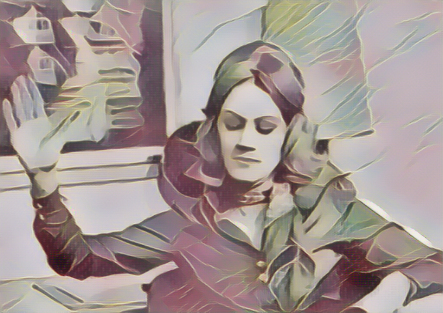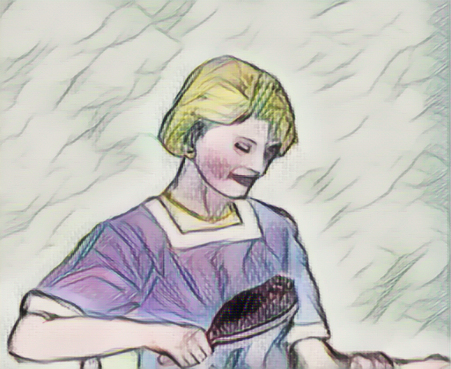Mrs Johnson’s house was a world apart—warm, inviting, and filled with the comforting scents of simmering stew and lavender polish. The evening unfolded quietly at first. We played a board game, laughter echoing off the walls, and she let me watch my favorite TV show, the flickering screen casting soft light across the room. But when bedtime approached and she told me to put on my pyjamas, I dug in my heels. I argued, stomped my feet, and tried every excuse I could muster. But Mrs Johnson was patient, her resolve unshakable. Eventually, I surrendered, grumbling as I changed into my nightclothes, the fabric feeling oddly unfamiliar against my skin.
After I had changed, she called me into the living room. The room was softly lit, shadows flickering on the wallpaper. She sat on a sturdy wooden armless chair, her posture straight and dignified. She beckoned me to stand before her, and I felt a knot tighten in my stomach. For the next fifteen minutes, she spoke to me—not with anger, but with a quiet, unwavering authority. She explained, in gentle but firm tones, why my behavior was unacceptable, why respect and discipline mattered, and what was about to happen. Her words were measured, her gaze steady, and I felt a strange sense of anticipation, tinged with dread and, beneath it all, a yearning for the certainty she offered.
Before I could fully process what was happening, she guided me gently across her lap. The world seemed to shrink to the space between us—the creak of the chair, the warmth of her hand, the sudden, startling sting as she delivered the first smack. I had never felt anything like it before. Each smack burned, but beneath the pain was a sense of release, as if a burden I hadn’t known I carried was being lifted. In that moment, I understood something profound: I needed this. I needed someone to care enough to set limits, to hold me accountable, to show me that boundaries could be an act of love.
That evening became a turning point in my life. Over the next few years, Mrs Johnson became a steady, guiding presence. She never hesitated to discipline me when I needed it—sometimes with her hand, sometimes with the slipper, the brush, or the wooden spoon. Each time, she explained her reasons, her voice calm and her eyes kind. With every lesson, I felt a little more anchored, a little more secure in the world. It may sound peculiar, but those moments of discipline—those small, private reckonings—became some of my most vivid and cherished childhood memories.
Now, at thirty-nine, I look back on those days with a bittersweet nostalgia. I miss the innocence of boyhood, the certainty of boundaries, and the strange comfort of knowing someone cared enough to teach me right from wrong. The slipper incident, and all that followed, shaped me in ways I’m only now beginning to understand. The echoes of those lessons linger, gentle and enduring, reminding me that love sometimes comes in the form of a firm hand and a steady voice.








